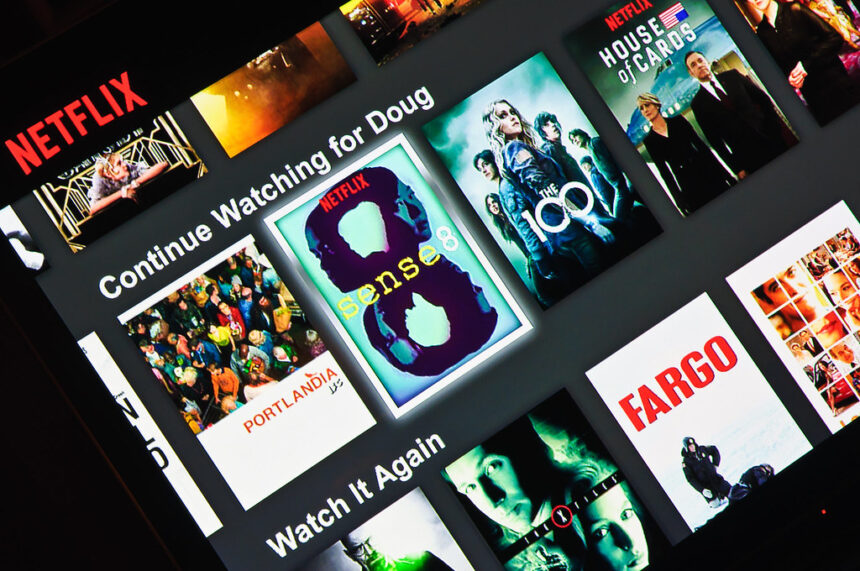Tired of not knowing what to watch on Netflix? That could be a thing of the past. The streaming platform is testing a new AI-powered tool that promises to help you find the perfect series or movie based on your mood, and not just on watch history.
According to a report by Bloomberg, the platform is integrating OpenAI’s AI technology into search engine, which would allow Netflix to give more precise recommendations tailored to the viewer’s emotional state.
Instead of searching by title, genre, or actor, users can enter more abstract or emotional descriptions, such as requesting a movie that makes them laugh, a series to watch when they’re sad, or content that combines different narrative styles. It’s worth noting that this has begun as a test, currently limited to iOS users in Australia and New Zealand.
Although the exact OpenAI model being used hasn’t been specified, the fact that the search is based on natural language suggests the involvement of ChatGPT or one of its variants. This implementation not only seeks to improve the user experience but also to increase dwell time on the platform, a key objective in today’s competitive streaming environment.
The partnership with OpenAI also responds to a need to differentiate itself from other platforms that rely primarily on traditional algorithms based on viewing history. Netflix is investing in conversational search, which is closer to human language, as a way to strengthen the emotional connection with its catalog.
Thus, if the test is successful, this technology is expected to expand to more regions and devices. For Netflix, this represents an opportunity to position itself as a pioneer in the use of AI in entertainment, leveraging a tool that not only responds to, but also interprets, the user’s emotional nuances to offer content more aligned with their personal context.
In this sense, artificial intelligence has ceased to be a data analysis tool and has become a direct interface between brands and their users. According to a report by McKinsey & Company, 79% of companies that use AI in their processes report increasing the personalization of their services, while 40% reported improvements in customer experience as the main benefit.
Within the digital media and entertainment sector, this trend has accelerated with the rise of generative language models, such as those developed by OpenAI. A Deloitte study highlights that 56% of streaming platforms are already exploring ways to integrate virtual assistants to improve content retention and discovery, especially among younger users accustomed to more fluid and intuitive interactions.
Content consumption on on-demand platforms has generated a phenomenon known as decision fatigue. According to a 2022 Nielsen survey, 66% of streaming consumers reported feeling overwhelmed by the number of options available. Faced with this scenario, companies are looking for solutions that reduce navigation friction and simplify access to relevant content.
Conversational AI is thus emerging as a key tool for making more accurate recommendations, based not only on behavioral data but also on the user’s emotional context.
For brands, this type of technology also represents a positioning opportunity. Partnering with leading artificial intelligence companies like OpenAI, Google DeepMind, or Anthropic not only provides technical capabilities but also a symbolic value of innovation that can differentiate a platform from its competitors.
Furthermore, the use of conversational assistants allows for the collection of richer data on user preferences, language, and emotions, which in turn fuels more advanced segmentation strategies.
According to Accenture, companies that apply emotional intelligence through AI to their customer relationships can improve their conversion rates by up to 30%.
In this context, the integration of models like ChatGPT into mass-market interfaces like Netflix is not just a technological issue, but a marketing and positioning decision: it’s about building more human, more intuitive, and more user-centered experiences.





